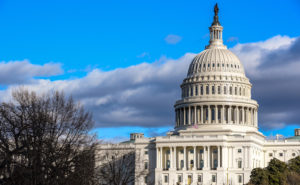
Administrative law makes the modern state compatible with principles of the rule of law.
Americans have been long resistant to strong executive authority. Although it is understandable that Americans would favor a system of strict separation of powers because the country began through a liberal revolution, the resistance to a strong executive has evolved into misplaced sentiments opposed to the so called “administrative state.”
Yet, as was even evident to political scientist Frank Goodnow in 1893, the United States grew into an administrative state. It remains one today, with the nation’s modern legal system based on statutes.
Nineteenth Century British legal theorist Dicey, well-known for popularizing the phrase “rule of law,” disparaged the administrative state. But he was wrong to do so. Countries ruled by administrative law have been effectively ruled by the law, at least to the same extent as common law countries. As Cass R. Sunstein and Adrian Vermeule brilliantly argue in their recent book, Law and Leviathan: Redeeming the Administrative State, the administrative state can be justified by its adherence to the rule of law.
On the one hand, the goal of administrative law is to empower public authorities to promote the public good in an effective way. Ordinary civil law, such as contracts or torts, does not provide the basis for regulatory actions such as providing public utilities, supervising regulated sectors, urban planning, or environmental protection.
On the other hand, administrative law is intended to protect citizens’ rights by limiting the power of public bodies. Significantly, in 1946, recognizing the need for greater structure in the administrative state, the U.S. Congress passed the Administrative Procedure Act (APA)––a hallmark in modern administrative law.
A few years later in 1958, Spain adopted its Administrative Procedure Law, which in turn has had a great influence in many Latin American countries. Spain’s 1958 Act took advantage of the 1889 Administrative Procedure Act, which was the first administrative procedure regulation in the world.
A legal framework composed of statutes governing administrative procedures and the essential elements of public bodies contributes to the preservation of the rule of law in the administrative state. Four questions illuminate how the rule of law underlies and supports the administrative state.
First, to what extent should agencies enjoy discretion to define policy? There is no doubt that the U.S. separation of powers vests Congress with the power to establish the law. Any regulation must comply with the substance of the authorizing statute. Consequently, agencies should have limited abilities to define policy choices. The role of agencies is to implement and enforce the law, which also includes rule-making. However, rule-making power gives agencies the ability to create secondary legislation. Agency rules should not make primary policy choices. So, when Congress writes statutes in very broad terms, it may not be properly fulfilling its constitutional role.
Second, why are some regulatory agencies “independent?” As a general rule, agencies should be subject to the direction of the President. This is the basic principle of administrative organization or administrative hierarchy and what gives democratic legitimacy to their decisions. Given this structure, why have “independent” agencies?
It should be noted that the model of independent agencies was first established in the United States and then exported to the world. But independent agencies in the United States and in most other countries are not completely immune to presidential influence. However, despite being only relatively independent—or “semi-autonomous”—the advantage of these agencies is that presumably, they are not subject to day-to-day political pressure. They are expected to take more neutral actions than cabinet agencies, which are closer to the political arena. On the other hand, independent agencies enjoy a certain democratic legitimacy, insofar as their boards are appointed by the President and are accountable to Congress.
Third, if judicial review is essential for the rule of law, what purpose does judicial deference or Chevron deference serve? When courts review agency action, judges may be deferential on questions of fact because in many cases there is more than one way to interpret the facts. It is not unusual for experts in a field to have differences of opinion on the meaning of the facts. That is why European Union case law refers to such facts as complex technical and economic issues. Judges can only void an administrative decision when it is not motivated by facts or it appears to be clearly unreasonable.
Courts may also give agencies deference on questions of law. Congress is responsible for the substantive legislation of a matter but may delegate authority to an agency to create secondary regulations. So, judges are only entitled to consider whether the agency has exercised its discretion within the limits of a delegation. A judge can strike down a regulation if it does not align with the purpose of the statute––one could argue this might have really been the case in Chevron v. Natural Resources Defense Council. Within the boundary of delegated statutory authority, however, agencies may exercise limited discretion––but discretion, nevertheless. Judges are not decision-makers, so they cannot substitute their own judgment for that of the agency.
Fourth, is a civil service system essential to an administrative state? Certainly, a civil service system has its weaknesses. But it is arguably better than a spoils system, which allows political appointees to fill administrative agency positions when new administrations rise to power. Civil servants do their work with expertise but also with objectivity, because––unlike political appointees––they have job security.
In short, the basic foundation of the administrative state is a system of agencies, served by civil servants––all governed by administrative law and operating within well-defined statutory constraints, subject to a comprehensive judicial review. These elements all provide the backbone of the rule of law.




